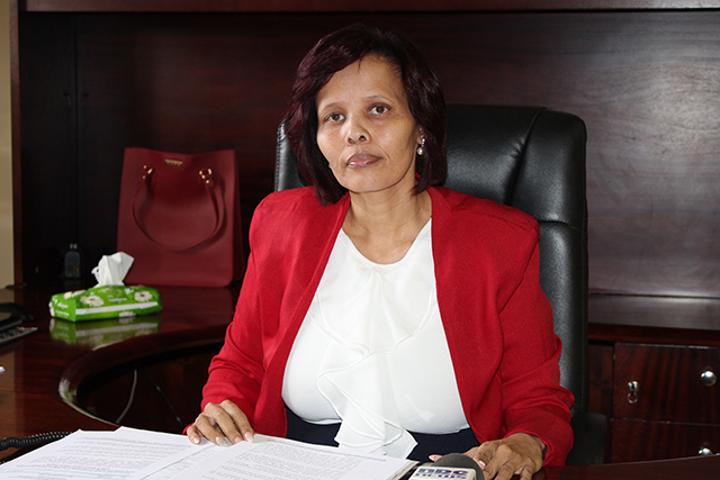Africa-Press – Namibia. //KHARAS region governor Aletha Frederick says the Neckartal Dam should be utilised as a multi-use system providing water for farming, agriculture, fisheries, and hydropower.
Frederick says the dam will play a key role in uplifting the livelihoods of communities as well as small, medium, and large-scale farmers through fisheries and aquaculture enterprise development.
She made these remarks at the official launch of a research project by the Ministry of Fisheries and Marine Resources at the Neckartal Dam on Wednesday. The project will investigate the potential of utilising the dam to develop inland fisheries and aquaculture.
Frederick said a preliminary field observation indicated the presence of various fish species, such as catfish, mudfish, yellowfish, and tilapia, in the dam.
“I strongly encourage entrepreneurs and farmers wishing to establish agribusinesses to consider integrated farming activities. Integrated farming involves agriculture and aquaculture, which are both utilising land and water, thus making use of the same natural resources,” the governor said.
A recent study by the ministry indicated that small-scale fisheries in the //Kharas region supports approximately 30 000 people directly. Frederick said the sector therefore has the potential to generate a wide variety of benefits, including nutrition and food security, income, and employment creation at household level.
“The ministry should provide training and build capacity for youths and women across the entire small-scale fisheries and aquaculture value chains, including providing post-harvest support, fish processing, drying, and trade to create employment and increase income for this segment of our population,” said the governor.
The research is being done in conjunction with the United Nations’ Food and Agriculture Organisation (FAO) in Namibia. The FAO will also provide management and technical assistance for the sustainable development of fisheries and aquaculture at the dam.
FAO representative Farayi Zimudzi in a speech made on her behalf said the research project is well aligned with the national plan of action for small-scale fisheries, which has been collectively designed by the FAO and the fisheries ministry.
Zimudzi said this strategy is aimed at empowering marginalised and vulnerable communities through improved participation in the inland fisheries sector.
“The strategy is currently in its draft form, and will be launched in 2022.
“The FAO remains committed to providing support to the government in fulfilling its national and regional priorities through the implementation of its country programming framework, which runs from 2019 to 2023,” said Zimudzi.
Johannes Hamukwaya, the deputy director of fisheries, said officials from the ministries of fisheries and agriculture visited the Neckartal Dam in July 2018 and compiled a report on inland fisheries and aquaculture development potential in response to the National Development Framework, which advocates green and blue economic growth.
Hamukwaya said during the site visit the fisheries team found that the project has the potential for small-scale fishery activities after its completion, and there will be a need for research, monitoring, and constant law enforcement to avoid stocking alien fish species and illegal fishing at the dam.
“It was recommended that the ministry undertake an environmental impact assessement, feasibility studies, and annual biological surveys at the Neckartal Dam with assistance from the FAO, and that’s why we are here today,” she said.
For More News And Analysis About Namibia Follow Africa-Press






